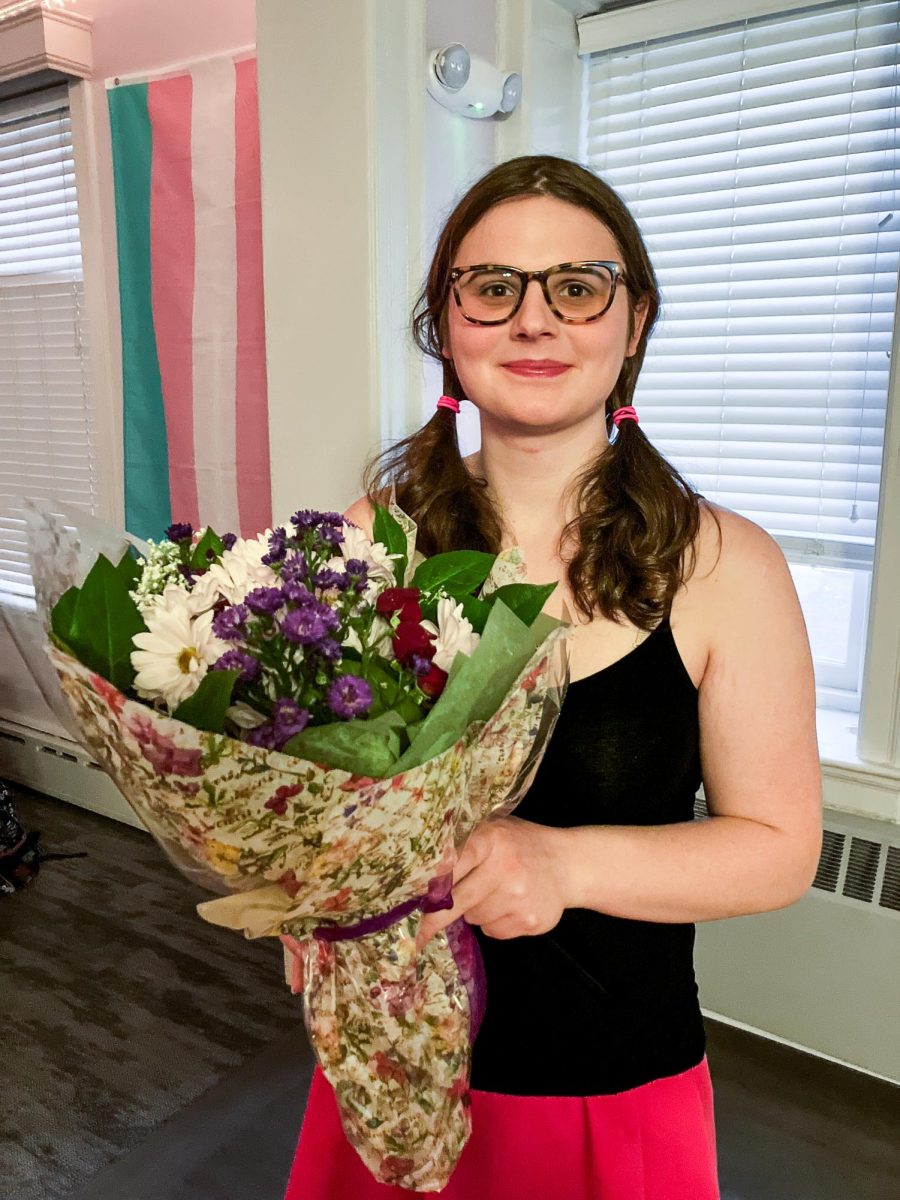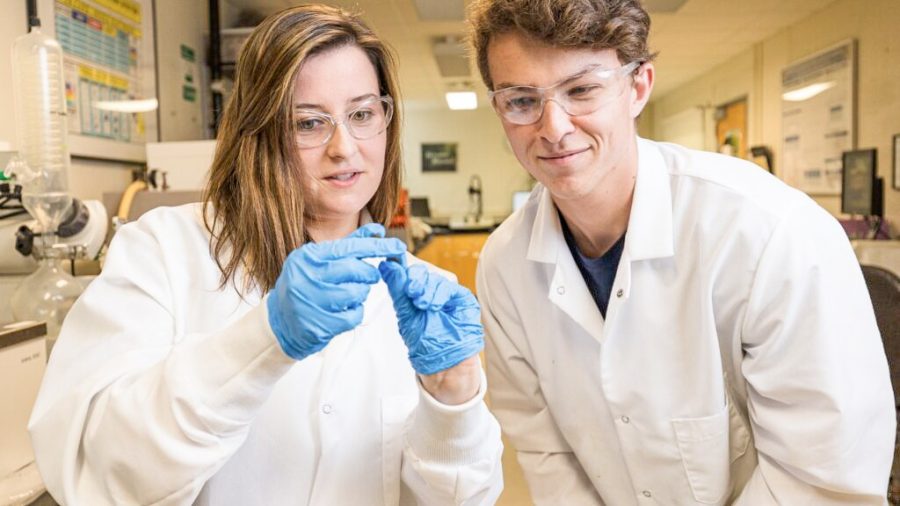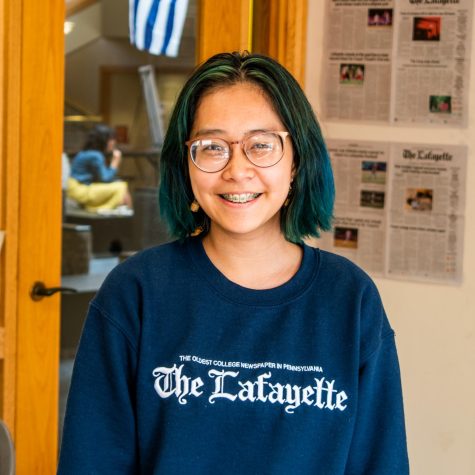Arriving at Lafayette in 2016, Chemical Engineering Professors Melissa Gordon ‘11 and Joe Woo have been teaching at the college for a combined 12 years. Now, they also boast a combined $800,000 in grant funding from the National Science Foundation (NSF).
Melissa Gordon
When Gordon was a chemical engineering student at Lafayette, she participated in research opportunities that helped her build the skills for a future career as a researcher. She came back to teach at Lafayette in 2016 with the intention of giving the same meaningful research experiences to a future generation of scientists with a 5-year $600,000 NSF grant.
Last December, Gordon received an NSF Faculty Early Career Development Program (CAREER) award, which is the organization’s most prestigious award for early-career faculty.
Gordon will use the grant to fund her research on polymers. She studies smart materials, or materials that respond to the environment around them. Her research focuses on developing smart polymers that respond to force by healing.
“Most materials degrade or break in response to excessive force. These would be built with a mechanism such that they could heal in response to increasing load,” Gordon explained of these smart polymers.
In addition to supplies for her research, the grant will also fund Gordon’s educational plans. She plans to use the money to employ both undergraduate and graduate students to help with her research.
Abby Devlin ‘22 and Jimmy Hastie ‘22 have already helped with collecting the preliminary data that appeared in the career proposal Gordon submitted as a part of her grant application. Hastie also helped Gordon outline large portions of the grant.
With the help of the grant, Devlin and Hastie will not be the last students to work with Gordon on this research.
Gordon also hopes to incorporate demonstrations using polymers and smart materials into her introductory material science class and a polymers elective course. She hopes to bring in speakers and scientists to this elective course who can give students insight into career possibilities within the field.
The grant has also provided Gordon with motivation to persevere with her research.
“It definitely motivates me to continue along the path that I’m on,” Gordon said of the grant. “And now, with the additional instrumentation and resources that I’ll have access to, I can execute these projects and give even more meaningful and impactful experiences to students as well.”
Joe Woo
With the help of a two-year $200,000 NSF grant, Woo will continue investigating one important cause of climate change. His research focuses on atmospheric aerosols, which are small particles in the air that can affect public health and climate. He aims to understand the chemistry and the physical properties of these aerosols.
Now, Woo needs to build an atmosphere chamber. His team will spray particles into the chamber and measure the output. The grant will be used to acquire a piece of equipment that will allow them to measure the size of aerosols.
The grant will also be used to employ student researchers who can perform the atmospheric measurements.
“Putting one student on an eight-hour experiment sounds like an incredibly soul-crushing experience,” Woo said of the student researchers performing these measurements. “So we got a bunch of people doing it together.”
Woo has been training two first-year students who will be working on the project: one in chemical engineering and one in mechanical engineering.
The chemical engineering student will be working on ways of capturing the aerosols in the chamber so that the team can measure them. The mechanical engineering student will build UV lamps to put outside of the atmosphere chambers to approximate sunlight conditions.
Woo won the grant just last month, so the project is still in the planning stages. However, he says that the multidisciplinary nature of the research will benefit a lot of researchers at Lafayette.
“Atmospheric science is an intrinsically multidisciplinary field…which means that if you really want to do a good job in characterizing atmospheric phenomena, you can’t just be looking at a chemical engineer. You also need chemists and physicists and mechanical engineers and environmental engineers,” Woo said. “It’s at a place like Lafayette where I think that this research will really thrive.”
Bernadette Russo ’24 contributed reporting.



























































































































